Credits
Feature by: Matt Bailey, Ben Ewing, Jonathan Foltz, Leo Goldsmith, Jenny Jediny, Ian Johnston, Evan Kindley, Tim Sun, and Rumsey Taylor
Posted on: 19 July 2010
External links:
Agnès Varda was born in Belgium in 1928 to French and Greek parents, a dual heritage she has negotiated in much of her work. She began her career as a photographer before directing her first film, La Pointe Courte, in 1954. Shot entirely on location, using working-class subjects and synchronized sound, the film bears many stylistic similarities to later films by Godard, Rohmer, and other critics from Cahiers du cinéma, though it precedes their work by several years and was made for a fraction of even their tiny budgets. Though Varda was more directly aligned with the Rive Gauche filmmakers (including Alain Resnais, Chris Marker and her husband Jacques Demy) than she was with the Cahiers group, there were undeniable affinities between the two aesthetics, cemented in 1962 when Godard vouched for her to producer Georges Beauregard, allowing her to make her next film, Cléo from 5 to 7. From this point on, Varda became the de facto godmother of the French New Wave.
Varda would go on to make dozens of films, no two precisely alike, but all informed by her distinctively whimsical visual aesthetic, strong political conscience, and happily catholic taste in both subjects and forms. Of internationally renowned filmmakers, perhaps only Werner Herzog is as comfortable alternating fiction films with documentaries. Like Herzog, too, Varda is almost as familiar as a public figure (and as a frequent presence in her own films) as she is as a director: her engaging, grandmotherly manner can be as disarming for audiences as it is for her subjects, but it shouldn’t lead us to underestimate her immense critical and cinematic intelligence.
In the next two weeks, in coordination with the availability of a great chunk of her oeuvre on MUBI.com, we’ll be looking at an array of Varda films, beginning with Cléo from 5 to 7 and concluding with her most recent effort, 2008’s The Beaches of Agnès. In between these poles we find Varda exploring topics from the Black Power movement of the late 1960s (Black Panthers), graffiti murals (Mur murs), homelessness (first fictionally in Vagabond, and then again in her acclaimed documentary The Gleaners & I), pedophilia (Kung-fu Master!), and the childhood memories of her beloved husband Demy (Jacquot de Nantes). In all of it we find a vision of cinema that overcomes many of the standard antinomies – commercial and experimental, narrative and documentary, light and heavy, political and aesthetic – in pursuit of something at once more comprehensive and more personal.
| Cléo from 5 to 7 | 1962 |
| Le Bonheur | 1964 |
| Les Créatures | 1966 |
| Uncle Yanco | 1967 |
| Black Panthers | 1968 |
| Lions Love | 1969 |
| Daguerréotypes | 1976 |
| One Sings, the Other Doesn’t | 1977 |
| Mur murs | 1981 |
| Documenteur | 1981 |
| Vagabond | 1985 |
| Jacquot de Nantes | 1991 |
| One Hundred and One Nights of Simon Cinéma | 1995 |
| The Gleaners and I | 2000 |
| Cinévardaphoto | 2004 |
| The Beaches of Agnès | 2008 |
By Matt Bailey, Ben Ewing, Jonathan Foltz, Leo Goldsmith, Jenny Jediny, Ian Johnston, Evan Kindley, Tim Sun, and Rumsey Taylor ©2010 NotComing.com
Reviews
-
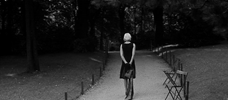
Cléo from 5 to 7
1962 -
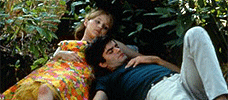
Le Bonheur
1964 -
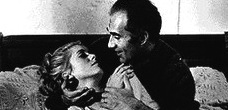
Les Créatures
1966 -
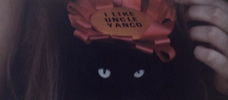
Uncle Yanco
1967 -

Black Panthers
1968 -
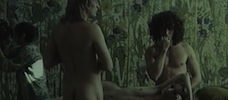
Lions Love
1969 -
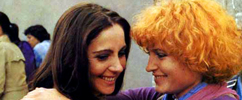
One Sings, the Other Doesn’t
1977 -

Daguerréotypes
1976 -

Mur murs
1981 -

Vagabond
1985 -
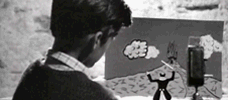
Jacquot de Nantes
1991 -

One Hundred and One Nights of Simon Cinéma
1995 -
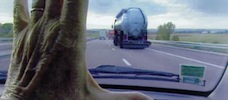
The Gleaners and I
2000 -
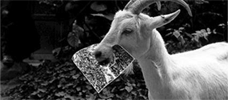
Cinévardaphoto
2004 -
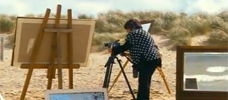
The Beaches of Agnès
2008
We don’t do comments anymore, but you may contact us here or find us on Twitter or Facebook.



